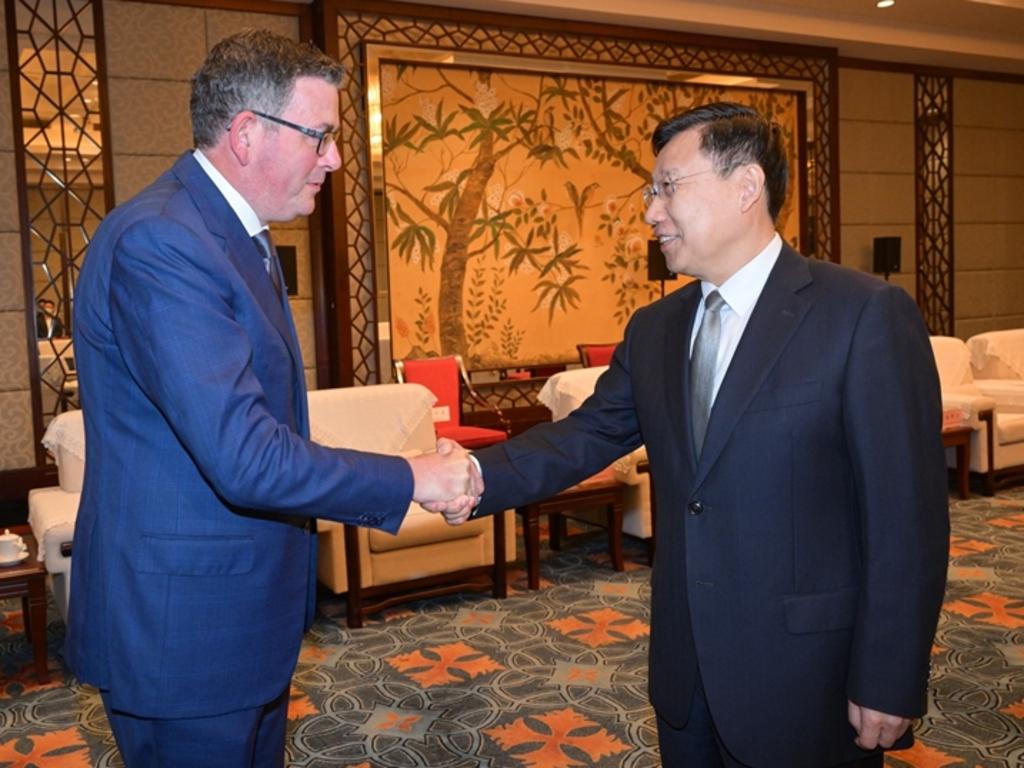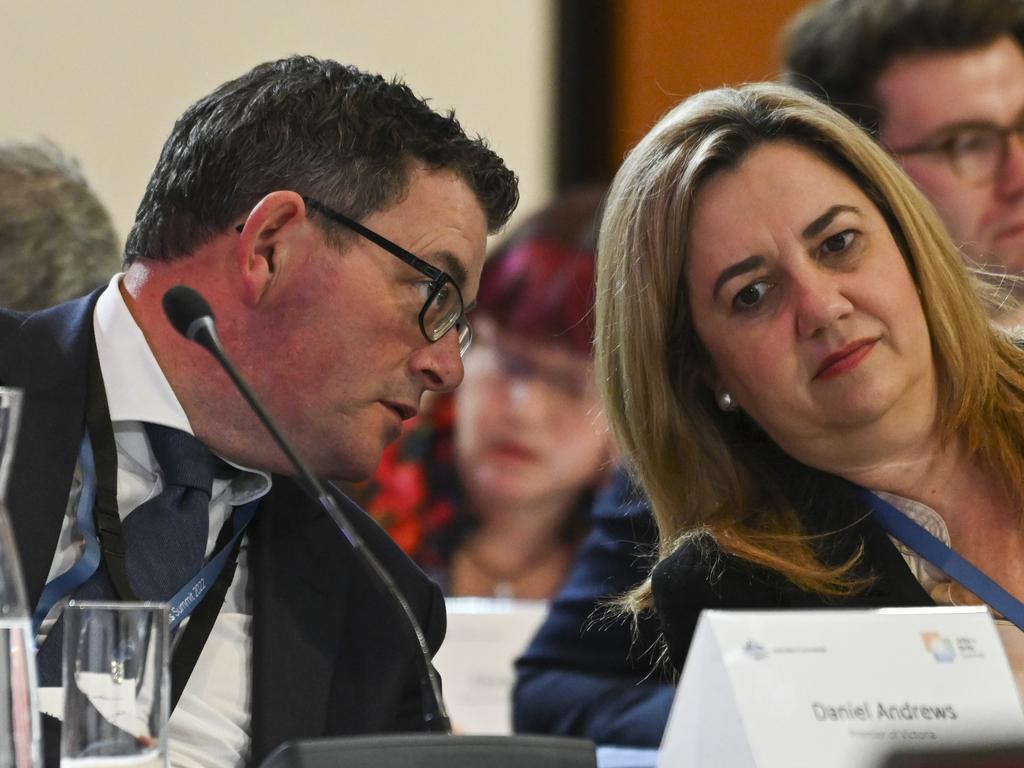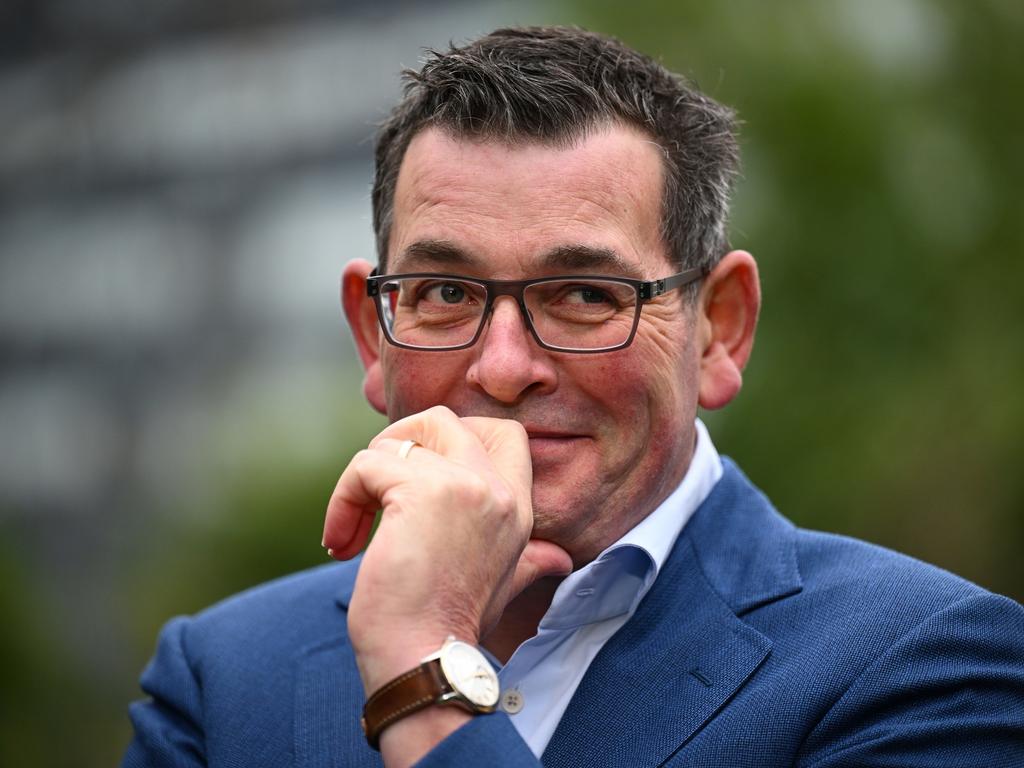Victoria’s 2026 Commonwealth Games get the chop but Dan Andrews probably won’t


Bjelke-Petersen dominated his state, assisted by a weak opposition and (with some exceptions) a compliant media. The same is true for Andrews, who has been in office for close to a decade having been re-elected with a thumping majority less than a year ago.
In the event, the Bjelke-Petersen era was replete with scandal and corruption. Labor has governed Queensland for much of the time since then. The unexpected decision of the Andrews government, announced this week, to junk the agreement that Victoria host the 2026 Commonwealth Games may deauthorise the Labor government and its socialist left leader. But don’t bet on it.
From around the time that Robert Menzies led the Liberal-Country Party Coalition to victory at the December 1949 federal election, and for some decades after, Victoria was regarded as the jewel in the Liberals’ crown. This was misleading.
Labor made its breakthrough in 1952 at the state level when John Cain Sr became the first Labor leader to head a majority government. But he lost the May 1955 election, due primarily to the Labor Party split earlier that year. This led to the formation of the Democratic Labor Party. The DLP preferenced the Coalition over the ALP until its demise in the mid-1970s.
Labor won office at the federal level under Gough Whitlam’s leadership in December 1972 and in Victoria a decade later when John Cain Jr became premier. The passing of the DLP contributed to the fact that Labor in Victoria is currently Labor’s pride and joy.
Addressing The Sydney Institute in 2021, former Victorian Liberal Party president Michael Kroger gave two reasons he believed that Victoria was different from the rest of Australia when it came to politics. He cited the fact that there was no mining industry of any note in Victoria, whereas mining was a big part of the Western Australia, Queensland and NSW economies and of some importance in South Australia and Tasmania.
In short, Victoria is not a significant exporter of minerals. And, consequently, not so affected by international trade in goods.
Kroger also cited the fact that the ACTU is based in Melbourne. This provides the trade union movement with significant on-the-ground presence that influences public policy. Moreover, the left intelligentsia is stronger, and less challenged, in Melbourne than in other mainland cities.
The Cain Labor government elected in 1982 turned out to be an economic disaster, symbolised by the collapse of the once great State Bank of Victoria. Cain was succeeded in mid-1990 by Joan Kirner, who lost the October 1992 election to Jeff Kennett. Kennett revived the Victorian economy but was narrowly defeated by Labor’s Steve Bracks at the October 1999 election. Labor has been in office since then – except for the first four years of the 2010s.
The Bracks government, which was followed by Labor premier John Brumby, ran an efficient social democratic administration. Not so the socialist left Andrews government, which has driven Victoria into a debt and deficit crisis unparalleled in similar-sized economies in Australia and elsewhere.
Economics aside, Andrews presides over a subdued electorate and a weak opposition, currently led by John Pesutto. Victorians put up with the most repressive lockdowns in the Western world during the Covid-19 pandemic, to the extent of closing and removing equipment from external children’s playgrounds.
Even so, Brett Sutton, Victoria’s outgoing chief health officer, has been declared Victorian of the Year. This despite the fact, on a per capita basis, deaths attributed to Covid-19 are significantly higher in Victoria than in NSW, where restrictions were not so severe.
The Victorian legal system is in a complete mess, highlighted by the unanimous decision of the High Court in April 2020 to quash the conviction of Cardinal George Pell for historical child sexual abuse.
The Victorian Director of Public Prosecutions, Kerri Judd KC, could not explain to the court how the alleged crimes of historical child sexual abuse could have taken place. Yet charges had been laid by Victoria Police and carried forward by the DPP.
Andrews made it clear that he did not approve of the decision of all seven judges of the High Court – an unprofessional intervention by a political leader in a criminal law matter. The poor performance by Victoria’s legal system is documented by Frank Brennan in the current issue of Quadrant magazine.
In recent times, Andrews was criticised by 38 prominent Victorian legal practitioners for having said former High Court judge Geoffrey Nettle was “altogether too close” to the Lawyer X case to recommend whether criminal charges should be laid.
Andrews’ intervention related to the situation where Victoria Police had encouraged a defence barrister to provide information about her clients to the prosecution. Nettle proposed prosecutions in his role as special investigator but the Victorian DPP rejected his advice.
And now there is the cancellation of the Commonwealth Games by Andrews without apology or evident empathy for those affected in Australia and other Commonwealth nations. Including the Australian netball team to which Victoria has provided significant financial support. Andrews has blamed the cost of the event, unwisely scheduled to take place in rural Victoria. It would seem that, once Andrews was no longer in need of rural votes for an election, it was easy to break a promise in the guise of saving money in Australia’s most debt-ridden state.
When Covid-19 escaped from designated quarantine hotels in Victoria, an inquiry appointed by the government found that no one was responsible for the incompetence. Yet Victorians re-elected a government that refused to accept responsibility for decisions taken on its watch.
And now the junking of the Commonwealth Games is also someone else’s fault. But the political tactic may work. Victoria once presented as the Garden State. It’s now a socialist left state – for the moment at least.
Gerard Henderson is executive director of the Sydney Institute.







Australia has had a few abrasive, dominant and successful leaders in the modern era. Joh Bjelke-Petersen, the Country Party premier of Queensland between 1968 and 1987, immediately comes to mind. And now there is Victorian Labor Party premier Daniel Andrews, who was first elected to office in December 2014.